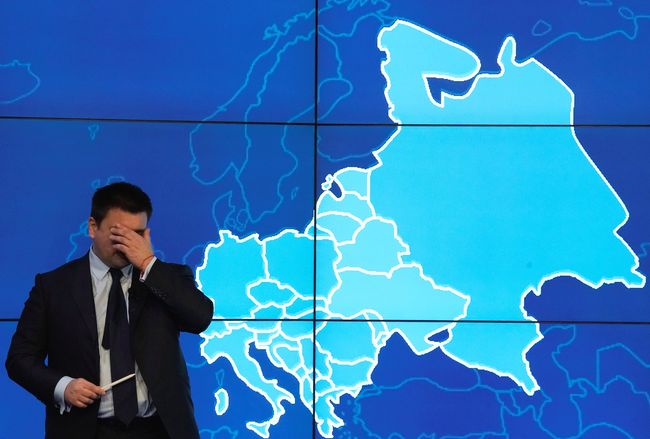The Cabinet has changed its mind. Estonia is not an offshore anymore. But...
Olena MAKIEIEVA: “Communication problems lead to international scandals”
A month ago, on December 27, 2017, the Cabinet of Ministers decided to expand the list of countries transactions with which Ukraine recognizes as needing controls for transfer pricing purposes. Government analysts added to their number Guadeloupe, Guatemala, French Guiana, the Commonwealth of Dominica, the Dominican Republic, Iran, Cuba, Laos, Lebanon, Mauritius, Malta, Morocco, Monaco, the UAE, Singapore, Georgia, Hungary, Latvia, and Estonia.
Such a decision provoked a major diplomatic scandal with the Baltic States. They considered it an unfriendly move on the part of Ukraine. During a personal meeting with Minister of Finance Oleksandr Danyliuk in Davos and a phone call with Prime Minister Volodymyr Hroisman, Prime Minister of Estonia Juri Ratas demanded that his nation be immediately removed “from the list of offshore jurisdictions.” The Ministry of Foreign Affairs of Latvia issued a protest note to Ukrainian diplomats on January 30. Estonian colleagues promised to do the same very soon.
However, Ukrainian mass media reported already on January 31 that the incident had been dealt with: Ukraine had removed Estonia and Latvia from the list of “offshore jurisdictions.” Still, what is done cannot be undone. The Ukrainian Facebook community spent January 31 in a stormy discussion dealing with who had actually provoked the scandal; some, apparently suspecting civil servants either of an insidious attempt to sow discord between Ukraine and its allies or of criminal incompetence, demanded that heads roll. Meanwhile, experts say that analysts are not to blame, as the real problem lies with our diplomacy.
Such a list is compiled annually for the State Fiscal Service (SFS). There are clear provisions in the tax legislation, according to which Ukraine lists a particular nation, regardless of whether it is our enemy or ally on fundamental geopolitical issues, as such that financial transactions with it need additional controls. This provision clearly states: if the nation in question uses a corporate income tax rate which is five or more percentage points lower than that used in Ukraine, this nation is an offshore jurisdiction. That is all. But, as explained by adviser to the minister of finance and former deputy minister of finance of Ukraine Olena Makieieva, before the publication of each such list, Ukraine had always negotiated with the leaders of the countries that were to be included on it. For instance, Ukraine subjected financial transactions with Austria and Switzerland to additional checks in 2015, and it caused no indignation, much less protest notes. Now, according to the expert, the scandal has been provoked by the Ukrainian diplomatic service being half-hearted about its duties and poor communication.
COMMENTARY
Olena MAKIEIEVA, an advisor to the minister of finance of Ukraine:
“Firstly, this is NOT a list of offshore jurisdictions, but a list of countries transactions with which are recognized as needing controls for transfer pricing purposes.
“That is, this list will be used exclusively for transfer pricing purposes. What does that mean? Such companies will submit reports on controlled transactions and (only when requested by the SFS!) relevant documentation proving that the prices used in such transactions were determined by market forces.
“Secondly, in my opinion, Estonia, Latvia, and Georgia were included in this list according to the following criterion: ‘Nations (territories), in which the particularities of the calculation of the tax base effectively allow businesses not to pay corporate income tax (corporate tax).’
“It is true, as in these countries, businesses are effectively allowed NOT to pay corporate income tax in the event that the profits are not distributed, but reinvested.
“Thirdly, the note speaks of ‘preferential tax regimes,’ but this criterion was not used to include Latvia in this list.
“As they say, understanding the problem is half the solution.
“Someone should explain this to our partners. In most European countries, transfer pricing rules apply to domestic transactions as well, and not only to those involving non-residents.
“In the end, this list is approved annually. Austria and Switzerland were on it in 2015... People met, explained things, provided official evidence – that is, worked and maintained constant communication.”
Newspaper output №:
№7, (2018)Section
Topic of the Day





